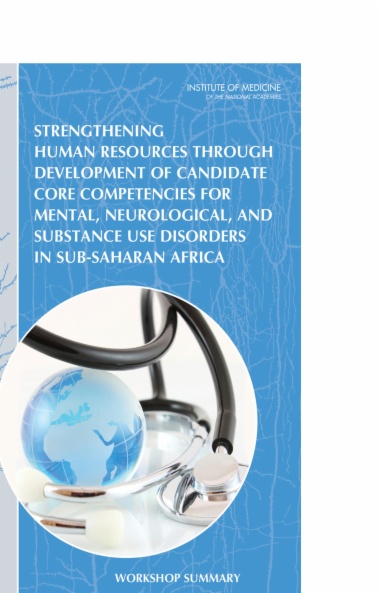

One of the largest treatment gaps for mental, neurological, and substance use (MNS) disorders in the world can be seen in Sub-Saharan Africa (SSA). According to the World Health Organization (WHO), about 80% of people with serious MNS disorders living in low- and middle-income countries do not receive needed health services. A critical barrier to bridge this treatment gap is the ability to provide adequate human resources for the delivery of essential interventions for MNS disorders. An international workshop was convened in 2009, by the .S. Institute of Medicine (IOM) Forum on Neuroscience and Nervous Systems Disorders and the Uganda National Academy of Sciences (UNAS) Forum on Health and Nutrition, to bring together stakeholders from across SSA and to foster discussions about improving care for people suffering from MNS disorders and what steps, with potential for the greatest impact, might be considered to bridge the treatment gap.
Due to the broad interest to further examine the treatment gap, the IOM forum organized a second workshop in Kampala, Uganda on September 4 and 5, 2012. The workshop\'s purpose was to discuss candidate core competencies that providers might need to help ensure the effective delivery of services for MNS disorders. The workshop focused specifically on depression, psychosis, epilepsy, and alcohol use disorders. Strengthening Human Resources Through Development of Candidate Core Competencies for Mental, Neurological, and Substance Use Disorders in Sub-Saharan Africa: Workshop Summary outlines the presentations and discussions by expert panelists and participants of the plenary sessions of the workshop. This summary includes an overview of challenges faced by MNS providers in the SSA, perspectives on the next steps, the 2009 workshop, and more.